Understanding Schizophrenia
Schizophrenia is a mental health disorder characterized by damage to key synapses in the brain that control actions, thoughts and feelings. This disordered function can cause a patient to have skewed perceptions about the world around them. These patients may also act out or withdraw from the outside world and others entirely.
Around 3.2 million Americans suffer from schizophrenia. This disorder typically appears during adolescence, but people can develop it in childhood or adulthood, as well.
Schizophrenia is a chronic condition that people must deal with their entire lives. They can, however, experience stretches of time when symptoms are less severe. When patients receive the right treatment, the disorder can be inactive, but these patients will need to continue their treatment in perpetuity in order to avoid a recurrence of symptoms.
Misconceptions about Schizophrenia
As with other mental health disorders, misconceptions about schizophrenia can make it difficult for those with the disorder to seek out help. It is important to stop myths and misconceptions about schizophrenia in their tracks.
Multiple Personalities
A whopping 64 percent of Americans believe that schizophrenics have multiple personalities. These two disorders are, in fact, completely unrelated.
Schizophrenics are Violent
A very damaging myth about schizophrenia is that these patients are violent. Not every schizophrenic acts out violently. In most cases where violence is present the individual has a history of drug abuse or other mental health problem.
Schizophrenics have to be in mental institutions
Many also believe that those with schizophrenia are condemned to life in mental institutions. This is not true, and this destructive myth prevents many people from getting the help they need. Inpatient care is only necessary in the most extreme situations or when an individual is adjusting to new medication.
What Causes Schizophrenia?
The specific cause of schizophrenia is unknown. Many experts believe that there is a genetic driver at play. Environmental triggers, including being exposed to viruses during development, may increase the risk of developing the disorder. There are some risk factors for schizophrenia, including:
- Autoimmune disorders
- Chronic inflammation
- Older fathers
- Mother malnourished or exposed to viruses during pregnancy
- Psychotropic drug use in adolescence
- A family history of the disorder
Is Schizophrenia Genetic?
Genes are not the only cause of this disorder, but many experts believe they play a big part in schizophrenia. Most researchers agree that several genes come together to increase the risk of schizophrenia in certain families. If your parent or grandparent has the disorder, you are at a higher risk of developing it. There are no guarantees, however. Some have identical twins with the disorder and never develop it themselves.
If you are concerned that you may be at risk for schizophrenia, you should consult with a mental health professional. Neuropsych testing can help determine whether or not you have the disorder.
Schizophrenia Symptoms
Schizophrenia affects may regions of the brain, resulting in a wide array of symptoms. The disease manifests very differently from one patient to the next. Some symptoms of the disorder include:
- Delusions
- Disorganized speech
- Hallucinations
- Detachment from friends and family
- Disorganized thinking
- Insomnia
- Depressed mood
- Irritability or paranoid behavior
- Bad hygiene
- Fidgeting or jerky movements
- Monotonous speech patterns
- Resistance to completing tasks
- Apathy towards previously enjoyed activities
- Poor performance in school or work
- Catatonia
- Faulty memory
Many of these symptoms are present in other mental disorders. When patients work with a mental health professional, that person will run a differential diagnosis to make sure that other disorders are not present.
Diagnosing Schizophrenia
Given the seriousness of a schizophrenia diagnosis, psychiatrists work hard to diagnose it correctly before beginning treatment. Diagnosing this disorder takes time. The first step typically is a physical exam during which the doctor looks for physical triggers of symptoms.
Next, a patient may undergo an MRI or CT scan so that doctors can observe any irregular activity in the brain. This helps rule out other problems, such as seizures, that might be causing symptoms.
Finally, a patient will receive a psychiatric evaluation. A patient will be asked to give a family and mental health history and list their symptoms. Some clients bring support people with them to these appointments. Sometimes, social workers are also involved.
After all the testing is complete, the diagnostic team references all data against the DSM-5 to determine whether or not the patient has schizophrenia.
Treating Schizophrenia
Schizophrenia requires treatment for the rest of a patient’s life. Even when symptoms lessen, a patient should still maintain their treatment protocols.
When patients exhibit very dangerous symptoms, they typically stay in residential treatment centers for a brief period of time. During this time, they can work with their team to address these symptoms with therapy and medication.
Patients who are not receiving inpatient treatment should still maintain a regular appointment schedule with caregivers. Medication management is particularly important with schizophrenia. Medications used to treat this disorder include antipsychotics, antidepressants, and anti-anxiety medications.
Doctors also use therapy to help patients with this disorder develop stronger coping mechanisms. Patients may also need to address the emotional strain of receiving such a serious diagnosis. The family of a patient can benefit from family therapy, as well, so that they can help the patient more effectively.
Telepsychiatry for Schizophrenia
Adhering to a consistent treatment schedule with schizophrenia is essential to patient health and wellness. For this reason, One Behavioral offers telepsychiatry for patients who are unable to attend in-office sessions. Telepsychiatry allows patients with schizophrenia to access their healthcare provider via the internet from the privacy of their home.
Telepsychiatry functions much in the same way in-office psychiatric sessions do. Your psychiatrist will provide the same level of treatment and will still be able to prescribe medication and manage existing prescriptions. To discuss your telepsychiatry for schizophrenia options, contact our offices right away.
